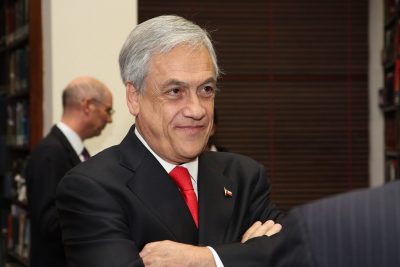Pinochet-Style Detentions, Torture, Killings: Chile’s President Sebastian Piñera Denounced at the ICC

.
Chilean President Sebastian Piñera would not have imagined, upon his electoral victory in 2017, that he would have mangled his political career beyond redemption. The 2017 Chilean presidential elections were characterised by a low turnout of voters, which largely indicated the left-wing electorate’s disillusionment in terms of candidates, proposals and, most importantly, the inherent corruption across the Chilean political spectrum since the country’s transition to democracy.
Prior to the 2019 protests across Chile, it was difficult to imagine any form of transition out of dictator Augusto Pinochet’s legacy. As the clamour for Piñera’s ousting and the collective cry for a new constitution resonated throughout the country, the government took a leaf out of the dictatorship’s book, imposing a military curfew and unleashing widespread, state-sanctioned violence which many Chileans said was reminiscent of the Pinochet era. Detention, torture, killings and disappearances occurred all over again, in a supposedly democratic period in Chile.
While Piñera eventually yielded to the demand for a new constitution and attempted to frame the decision as that of a government listening to its people’s demands, social movements in Chile were not acquiescing anymore to the imposed narrative. The right-wing suffered yet another blow in the vote to choose the individuals tasked with writing the new constitution, with voters electing a majority of independent and left-wing candidates.
For Piñera, however, the 2019 protests sealed his legacy. Working alongside the former Spanish Judge Baltasar Garzon who, in 1998, issued an international arrest warrant for Pinochet for crimes against humanity while the dictator was in London, Chilean human rights organisations filed a report with the International Criminal Court, asking for an investigation into the crimes against humanity committed by the Chilean government during the 2019 protests. The report called for Piñera’s prosecution, along with other officials responsible for the atrocities.
Establishing criminal culpability and accountability in the Chilean courts is fraught with the prevailing political impunity. To date, many dictatorship era crimes have gone unpunished, and it is up to human rights organisations to constantly uphold the struggle for justice. One of the main arguments brought forward by Garzon and the human rights organisations, in fact, is that 3,050 cases out of 6,568 have been archived by the prosecution -a clear indication of judicial impunity.
The more recent violations are no exception. While Chileans were being beaten and shot in the eyes by the military during the protests, and human rights organisations, including international bodies, were documenting the cases, Piñera was praising the military’s conduct, exhibiting a complete dissociation when it comes to the situation on the ground for Chileans.
According to the Justice Studies Centre of the Americas (JSCA), “there is a widespread breach of informality, opportunity and thoroughness in the investigations of severe human rights violations.” The JSCA also noted that Chile’s prosecutor does not have “a specialised unit focused on investigating human rights violations, unlike other Latin American countries.”
The violations inflicted upon Chileans by the military during the 2019 protests have been classified as common crimes in Chile – a deliberate move, the human rights organisations insisted, in order to delay justice and allow the government to provide amnesty for the individuals involved.
While the ICC’s decision regarding whether the filed complaint falls within its jurisdiction may take years, the action to access international justice points both towards the Chilean courts’ failure as a result of political bias, as well as the Chilean people’s steadfastness when it comes to accountability. For decades, Pinochet’s shadow loomed over, influencing the transition to democracy as democratically-elected governments refused to make a clean break with the dictatorship. The 2019 protests have ignited change in Chile, which the people are determined to bring to fruition.

